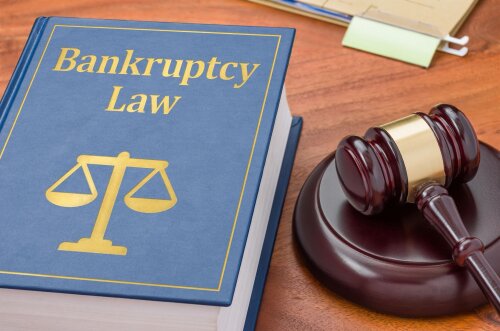Best Creditor Lawyers in Alabama
Share your needs with us, get contacted by law firms.
Free. Takes 2 min.
Or refine your search by selecting a city:
List of the best lawyers in Alabama, United States
About Creditor Law in Alabama, United States
Creditor law in Alabama governs the legal rights and responsibilities of individuals, businesses, and institutions that extend credit or lend money. These laws establish how creditors can recover unpaid debts, the procedures for initiating collections, and the protections available to both creditors and debtors. In Alabama, creditor law encompasses several related areas including debt collection, secured transactions, bankruptcy, foreclosures, and liens. The main goal of these laws is to balance a creditor’s ability to recover what is owed while safeguarding consumers from abusive or unlawful practices.
Why You May Need a Lawyer
People may require legal help with creditor matters in a variety of situations. Common scenarios include disputes over unpaid debts, dealing with aggressive collection agencies, handling foreclosure proceedings, litigating repossession cases, or navigating bankruptcy filings. A lawyer experienced in Alabama creditor law can help you understand your rights, negotiate with debtors or creditors, draft or review agreements, represent you in court, and ensure compliance with relevant state and federal regulations. Legal assistance is especially valuable if you are being sued over a debt, need to collect a significant sum, or face complex creditor-debtor relationships.
Local Laws Overview
In Alabama, several laws and regulations specifically impact the rights and procedures for creditors:
- Statute of Limitations: Alabama law sets specific time limits for creditors to file lawsuits for collection of debts. For example, open accounts such as credit card debts generally have a 3-year limitation, while written contracts may allow up to 6 years.
- Garnishment and Attachment: Creditors can obtain a court order to garnish a debtor’s wages or bank accounts, though state laws provide protections for a portion of the debtor’s earnings.
- Repossession and Foreclosure: Alabama is a non-judicial foreclosure state with specific requirements for notice and procedure. Repossession of secured property, like vehicles, must comply with certain notice and conduct standards.
- Debt Collection Practices: The Alabama State Bar and federal Fair Debt Collection Practices Act limit the methods and practices that debt collectors may use.
- Bankruptcy Implications: Bankruptcy filings can stay (temporarily halt) most creditor actions, and the types of debt that can be discharged are subject to both federal bankruptcy law and Alabama-specific provisions.
- Lien Laws: Mechanic’s liens, judgment liens, and other claim tools require compliance with Alabama statutes to be effective and enforceable.
Frequently Asked Questions
What is a creditor according to Alabama law?
A creditor is any individual or entity to whom money is owed, either because of a loan, unpaid bills, court judgment, or other financial obligation.
How long do creditors have to collect a debt in Alabama?
Most debts are subject to statutes of limitations of either 3 or 6 years, depending on the type of debt and whether there is a written contract. Once this period passes, creditors cannot sue to collect the debt, though they may still attempt to request payment.
Can a creditor garnish my wages in Alabama?
Yes, creditors who have obtained a court judgment can request a wage garnishment, but Alabama law exempts a percentage of your wages from garnishment to protect essential income.
What steps must a creditor take before repossessing property?
Creditors must provide notice of default and follow the terms of the security agreement and applicable Alabama laws. They must also avoid breaching the peace during repossession.
Is Alabama a judicial or non-judicial foreclosure state?
Alabama primarily uses non-judicial foreclosure, allowing lenders to foreclose without court action if proper notice is given and procedures are followed.
What are debt collection limitations in Alabama?
Both Alabama law and federal statutes restrict abusive practices, require validation of the debt, and provide debtors the right to dispute claims and request verification.
Can bankruptcy stop creditor actions in Alabama?
Filing for bankruptcy generally triggers an automatic stay, which immediately stops most creditor actions such as collections and foreclosures while the case is resolved.
How do creditors enforce a judgment in Alabama?
After obtaining a judgment, creditors may use legal tools like wage garnishment, bank account levies, or placing liens on property, subject to certain restrictions and exemptions.
Can a creditor contact my employer or family members?
Debt collectors have limitations on whom they may contact. In most cases, they can reach out to verify employment but not reveal information about debts to others without explicit permission.
What are my options if I am wrongly pursued by a creditor?
You can dispute the debt in writing, demand verification, and, if necessary, file a complaint with state or federal regulators or seek legal counsel for defense and potential damages.
Additional Resources
If you need more information or assistance regarding creditor law in Alabama, consider reaching out to these organizations:
- Alabama State Bar Association - provides lawyer referrals and legal resources
- Alabama Department of Banking - oversees financial institutions and lending regulations
- United States Bankruptcy Courts, Northern, Middle, and Southern Districts of Alabama
- Consumer Financial Protection Bureau - offers guidance on debt collection and consumer rights
- Legal Services Alabama - provides free or reduced-fee legal aid for eligible individuals
Next Steps
If you find yourself in a creditor-related legal situation in Alabama, start by gathering all relevant financial documents and correspondence. Clearly identify your goals, whether you need to collect a debt, defend against a claim, or understand your rights and obligations. Consider consulting with a qualified Alabama attorney who practices in creditor law. Legal professionals can offer tailored advice, negotiate on your behalf, and represent you if litigation becomes necessary. Do not delay in seeking help, as missing deadlines and ignoring legal notices can limit your options or worsen your situation.
To move forward, contact the Alabama State Bar or a recommended local legal aid organization to find an attorney with expertise in creditor matters. Prepare an overview of your case and be ready to ask questions so that your attorney can best assess your circumstances and advise you on next steps.
Lawzana helps you find the best lawyers and law firms in Alabama through a curated and pre-screened list of qualified legal professionals. Our platform offers rankings and detailed profiles of attorneys and law firms, allowing you to compare based on practice areas, including Creditor, experience, and client feedback.
Each profile includes a description of the firm's areas of practice, client reviews, team members and partners, year of establishment, spoken languages, office locations, contact information, social media presence, and any published articles or resources. Most firms on our platform speak English and are experienced in both local and international legal matters.
Get a quote from top-rated law firms in Alabama, United States — quickly, securely, and without unnecessary hassle.
Disclaimer:
The information provided on this page is for general informational purposes only and does not constitute legal advice. While we strive to ensure the accuracy and relevance of the content, legal information may change over time, and interpretations of the law can vary. You should always consult with a qualified legal professional for advice specific to your situation.
We disclaim all liability for actions taken or not taken based on the content of this page. If you believe any information is incorrect or outdated, please contact us, and we will review and update it where appropriate.
Browse creditor law firms by city in Alabama
Refine your search by selecting a city.












